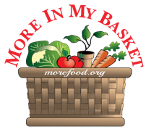How to Prepare Your Kitchen for Hurricane Season
go.ncsu.edu/readext?944962
en Español / em Português
El inglés es el idioma de control de esta página. En la medida en que haya algún conflicto entre la traducción al inglés y la traducción, el inglés prevalece.
Al hacer clic en el enlace de traducción se activa un servicio de traducción gratuito para convertir la página al español. Al igual que con cualquier traducción por Internet, la conversión no es sensible al contexto y puede que no traduzca el texto en su significado original. NC State Extension no garantiza la exactitud del texto traducido. Por favor, tenga en cuenta que algunas aplicaciones y/o servicios pueden no funcionar como se espera cuando se traducen.
Português
Inglês é o idioma de controle desta página. Na medida que haja algum conflito entre o texto original em Inglês e a tradução, o Inglês prevalece.
Ao clicar no link de tradução, um serviço gratuito de tradução será ativado para converter a página para o Português. Como em qualquer tradução pela internet, a conversão não é sensivel ao contexto e pode não ocorrer a tradução para o significado orginal. O serviço de Extensão da Carolina do Norte (NC State Extension) não garante a exatidão do texto traduzido. Por favor, observe que algumas funções ou serviços podem não funcionar como esperado após a tradução.
English
English is the controlling language of this page. To the extent there is any conflict between the English text and the translation, English controls.
Clicking on the translation link activates a free translation service to convert the page to Spanish. As with any Internet translation, the conversion is not context-sensitive and may not translate the text to its original meaning. NC State Extension does not guarantee the accuracy of the translated text. Please note that some applications and/or services may not function as expected when translated.
Collapse ▲
From June 1 to November 30, it is important to be prepared for hurricane season. In many parts of the United States, including North Carolina, the population may be heavily affected by strong winds and hazards that may come with them. It is especially important to prepare and organize your kitchen for this time of year as food and water are necessary items you need to have on hand in case of an emergency.
Looking for the right information can be overwhelming, but following some of these tips can prove beneficial this summer and fall. Make sure that your household is prepared for this event by:
- Creating an evacuation plan
- Assembling disaster supplies such as food, water, cash, and batteries.
- Getting an insurance checkup
- Relying on accurate forecasts such as from the National Hurricane Center
- Determining shelter options in your house
As for food, allow yourself time to review the following instructions to have an action plan in place. You may want to write these down and post on the side of your refrigerator. To prepare for a power outage:
- Use appliance thermometers to determine whether food is safe during a power outage
- Refrigerator temperature should be 40° F or lower
- Freezer temperature should be 0° F or lower
- Freeze refrigerated items (poultry, fresh meat, and leftovers)
- Make ice cubes, freeze gel packs in advance, and if possible, buy a cooler
- Buy non-perishable items that you can have access to for long periods of time
- Discard perishable food (eggs, milk, soft cheeses, meat, etc.)
- If you are in doubt, throw it out! Avoid consuming questionable food.
We hope these strategies help you to make the most of your food dollar.
For questions about the Supplemental Nutrition Assistance Program or to receive SNAP Application Assistance contact the More In My Basket staff:
Visit: More Food
English Toll Free: 1-855-240-1451
Spanish Toll Free: 1-888-382-7105
Information Accessed at: 2023 National Hurricane Preparedness Week: Are you ready? and Hurricane Season is Here: Is Your Refrigerator Ready?



